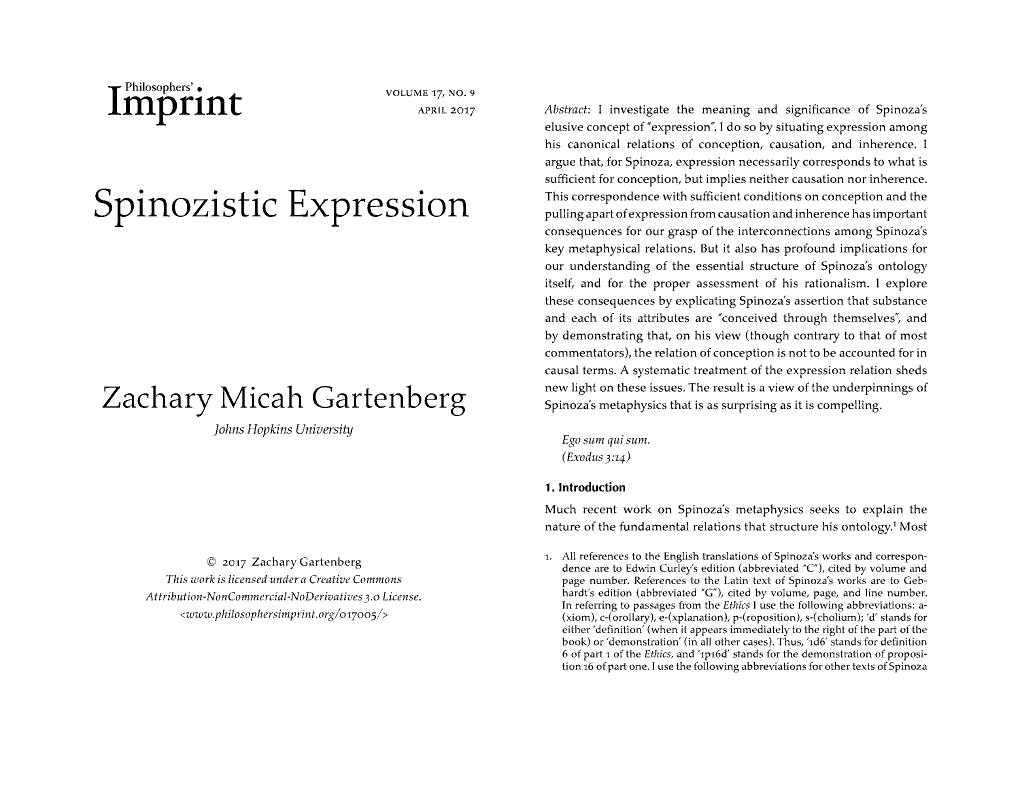Spinozistic Expression
Skip other details (including permanent urls, DOI, citation information): This work is licensed under a Creative Commons Attribution-NonCommercial-NoDerivatives 3.0 License. Please contact [email protected] to use this work in a way not covered by the license.
For more information, read Michigan Publishing's access and usage policy.
Abstract
I investigate the meaning and significance of Spinoza’s elusive concept of “expression”. I do so by situating expression among his canonical relations of conception, causation, and inherence. I argue that, for Spinoza, expression necessarily corresponds to what is sufficient for conception, but implies neither causation nor inherence. This correspondence with sufficient conditions on conception and the pulling apart of expression from causation and inherence has important consequences for our grasp of the interconnections among Spinoza’s key metaphysical relations. But it also has profound implications for our understanding of the essential structure of Spinoza’s ontology itself, and for the proper assessment of his rationalism. I explore these consequences by explicating Spinoza’s assertion that substance and each of its attributes are “conceived through themselves”, and by demonstrating that, on his view (though contrary to that of most commentators), the relation of conception is not to be accounted for in causal terms. A systematic treatment of the expression relation sheds new light on these issues. The result is a view of the underpinnings of Spinoza’s metaphysics that is as surprising as it is compelling.



